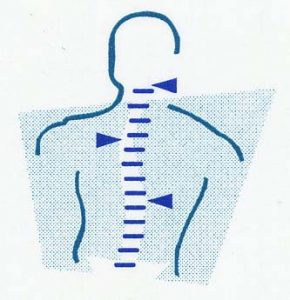 By: Susan St. John
By: Susan St. John
As many chiropractors are likely aware, they cannot “opt-out” of Medicare. Even if a chiropractor has not enrolled to be a Medicare provider, a Medicare beneficiary may require the chiropractor to submit a claim to or bill the Medicare program on his/her behalf for chiropractic services rendered. For chiropractic services to be covered by Medicare, the patient must have a condition necessitating treatment and manipulative services rendered must have a direct therapeutic relationship to the patient’s condition. The manipulative services must provide a reasonable expectation of recovery or improvement of function. Further, the Medicare patient’s condition must be acute and not a chronic subluxation without objective clinical improvement anticipated. Manipulative treatment beyond treating the acute phase, that is, a chronic condition, is considered maintenance therapy and is not covered. Thus, a chiropractor needs to carefully consider at what point a Medicare beneficiary’s treatment becomes palliative or maintenance therapy which would not be covered and thoroughly explain this to the patient. The chiropractor has a duty to let the patient know when treatment is no longer curative or therapeutic, but rather maintenance therapy.
The Medicare beneficiary can only require claims be submitted to Medicare for spinal manipulation treatments. As discussed above, Medicare will pay for medically necessary therapeutic spinal manipulation, but will deny palliative or maintenance spinal manipulation treatments. Some Medicare beneficiaries may want proof of Medicare’s denial of a claim for chiropractic services in order for another health insurer to pay for the services or give credit to the patient’s required deductible or coinsurance for such other insurance. Thus, a chiropractor may encounter Medicare patients that require the chiropractor to submit claims to Medicare for all spinal manipulation treatments.
Direct Primary Care Agreements and Non-Covered Chiropractic Services
With the recent passage of the Direct Primary Care Agreements (“DPCA”) statute, many chiropractors are wondering what services may be offered to Medicare beneficiaries through DPCAs without running afoul of Medicare requirements to submit claims to or bill Medicare on behalf of a Medicare beneficiary. Based on the Medicare billing manual and Noridian’s website, all services other than manual manipulation of the spine for treatment of subluxation of the spine are excluded from payment when ordered or performed by a chiropractor and chiropractors are not required to bill Medicare for these services. Specifically, a chiropractor is not required to bill Medicare for the following services:
| · Lab tests;
· Office visits (history and physicals); · physiotherapy; · traction, ultrasound, or exercise; · supplies, including vitamins or pillows; · injections; · drugs; · X-rays; · diagnostic studies, including EKGs; · Acupuncture; |
· Orthopedic devices, including bracing and supportive devices;
· Nutritional supplements and counseling; · Counseling/education; · Physical therapy (performed by a chiropractor); and · Chiropractic treatments to extra-spinal regions such as the head, upper and lower extremities, rib cage, and abdomen. |
Since the specific therapies listed above are not covered and a chiropractor is not required to bill Medicare for these therapies, the chiropractor is not limited as to what may be charged for each of the therapies list above. Likewise, since Medicare will not pay for maintenance or palliative spinal manipulation services, the chiropractor may set the charge for these services as he or she wishes. The chiropractor may bill and collect upfront for services that are not covered by Medicare. Further, the chiropractor could offer these services through a DPCA, giving patients a menu of services that would be covered under a flat monthly fee. If offering maintenance or palliative spinal manipulation services through a DPCA, the chiropractor should obtain a signed Advanced Beneficiary Notice of Non-Coverage (“ABN”) for any maintenance or palliative spinal manipulation services with option 2 selected which states, “Medicare will not be billed.” Keep in mind, however, that a Medicare beneficiary still has the right to require a chiropractor to bill for spinal manipulation services, notwithstanding having a signed ABN form. Should a Medicare beneficiary demand the chiropractor bill for maintenance and palliative services, it will put the chiropractor at risk for violating the provision of the DPCA statute, Section 624.27, Florida Statutes. Thus, caution should be exercised in deciding whether or not to add any spinal manipulation services to a DPCA for Medicare beneficiaries.
